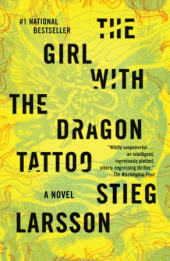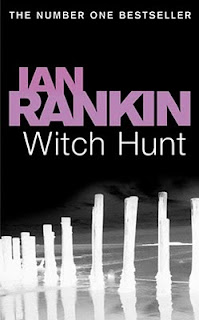I'm not finding a memorable first paragraph or pithy quote... I just know that I really like this book--a book written
early days by Ian Rankin, before the John Rebus series made him any serious money. He needed more of an income and his publisher liked releasing just one Inspector Rebus book a year. His small family had just moved to the Dordogne in France--the cheapest French country home they could find--and renovations were required.
Rankin decided to write under a pseudonym, choosing his son's first name and his wife's maiden name--
Jack Harvey. I like that he explains that falling in the middle of the alphabet
Harvey insured that book shoppers would more likely find his books. There were three Jack Harvey books before the Rebus series began requiring more time and yielding more of an income.
Witch Hunt is the first of the three.
Interestingly, there is not one main detective character in this novel--one could argue for Dominc Elder, but really there are several almost equally strong characters--Joyce Parry or Michael Barclay or John Greenleaf or even
Hardman Doyle. Elder is the one who comes with a back story.
Early on I make several guesses regarding twists in the story--thinking that Joyce will be uncovered as Elder's ex-wife and that Witch will be their long-lost daughter. I'm wrong on both, never guessing the actual twists Rankin has interwoven.
These days Ian Rankin is the #1 best selling mystery writer in the United Kingdom, so no need for pseudonyms or extra income.
From the Forward
:
The female of the species is more deadly than the male.
Rudyard Kipling
The Female of the Species
If woman had no existence save in the fiction written by men, one would imagine her a person of the utmost importance; very various; heroic and mean; splendid and sordid; infinitely beautiful and hideous in the extreme; as great as a man, some think even greater.
Virginia Wolf
A Room of One's Own
A woman's desire for revenge outlasts all other emotions.
Cyril Connolly






































